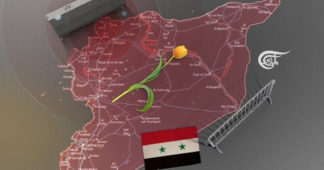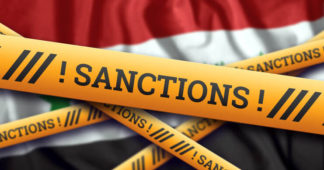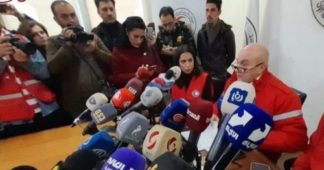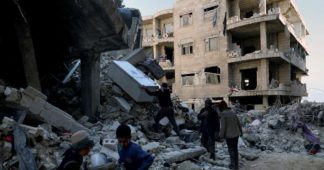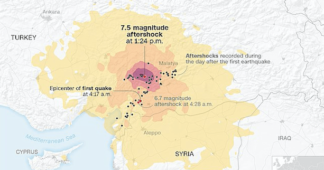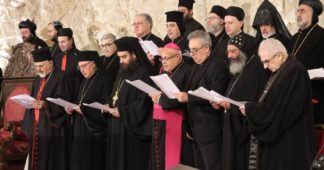The US has shown no interest in lifting the sanctions, which are specifically designed to prevent Syria’s reconstruction
Posted on
CategoriesThe head of the Syrian Arab Red Crescent (SARC) on Tuesday called for the lifting of US and other Western economic sanctions on Syria following a massive earthquake that has killed over 7,000 people in Syria and Turkey.
“The evacuation process and rescue operations are restricted due to obstacles resulting from the severe sanctions,” said Khaled Hboubati, president of the SARC. He said the sanctions are preventing Syria from acquiring machinery needed to rescue people from the rubble.
“I mean specific machinery that lifts the rubble without injuring people trapped under the rubble. The economic sanctions imposed on our country is the main obstacle to getting this machinery,” Hboubati said.
“With this, we demand for the lifting of economic sanctions and the siege in order … to allow aid deliveries and humanitarian actions to be implemented by SARC and other bodies,” he said.
Hboubati appealed specifically to the European Union to lift sanctions and asked the US Agency for International Development (USAID) for humanitarian assistance. “These sanctions are against who? Against the Syrian people?” he said.
The SARC operates in government-controlled territories, but Hboubati said they’re willing to cross into areas of Idlib that are mainly controlled by Hayat Tahrir al-Sham (HTS), an al-Qaeda-linked group, if parties agree to open a crossing. “We are ready to send a convoy through the crosslines into Idlib,” he said.
In the wake of the earthquake, there are growing calls for sanctions on Syria to be lifted. “We urge the immediate lifting of sanctions on Syria and allowing access to all materials, so sanctions may not turn into a crime against humanity,” said the Middle East Council of Churches, a group representing Catholic, Orthodox, and Coptic Christians in the region.
Despite the calls, the US has shown no interest in easing sanctions. In comments to Antiwar.com, a State Department spokesperson claimed that “our sanctions programs do not target humanitarian assistance. Rather, as a general matter, our General Licenses permit activities in support of humanitarian assistance, including in regime-held areas.”
But The New York Times reported on Tuesday that Syria “is not able to receive direct aid from many countries because of sanctions.” Only NGOs are able to transport aid into the country, but the sole border crossing approved by the UN for aid deliveries is closed because of damage caused by the earthquake.
Even if the sanctions do have exemptions for humanitarian goods, they can still cause banks to block transactions with aid groups inside Syria. US sanctions also cause gas shortages as they target the country’s energy sector. “There is no fuel even to send (aid and rescue) convoys, and this is because of the blockade and sanctions,” Hboubati said. On top of the sanctions, the US also occupies eastern Syria, where most of the country’s oil and gas resources are located.
US sanctions on Syria are also specifically designed to prevent the country’s reconstruction. Secretary of State Antony Blinken said in October 2021 that it is US policy to “oppose the reconstruction of Syria” until there is a “political settlement” in Damascus, meaning regime change.
Also read
Lifting of Sanctions to Allow Aid into Syria
We remind our readers that publication of articles on our site does not mean that we agree with what is written. Our policy is to publish anything which we consider of interest, so as to assist our readers in forming their opinions. Sometimes we even publish articles with which we totally disagree, since we believe it is important for our readers to be informed on as wide a spectrum of views as possible.
